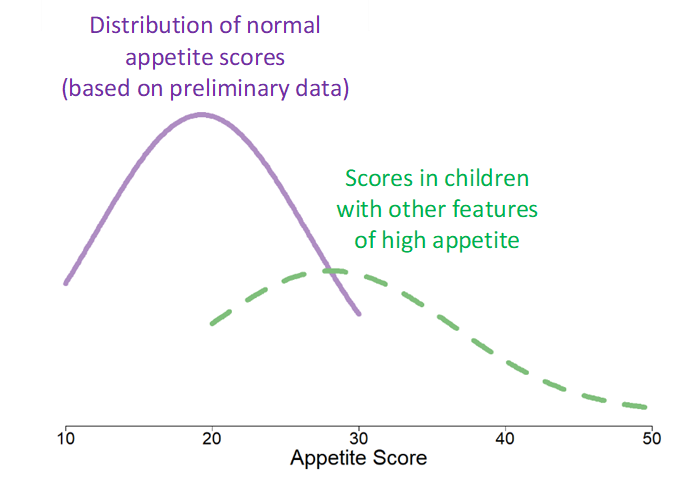What information are we asking you to share?
The Appetypes online survey asks about your child’s typical eating behaviour and requests for food during a number of different situations, e.g. during and between meals.
We also ask a small number of questions about your child’s age, gender, height, weight, ethnicity, number of siblings, and your educational qualifications – these answers will help us know how well our survey covers the general UK population.
The survey webtool we are using (qualtrics)also automatically records how long you take to complete the survey and the rough location (nearest city or to the nearest 20-30 km) of your computer or phone (your “GeoIP Location”).
Why are we collecting this data?
Appetite types differ widely between children. Our appetites go up and down during the day, before and after meals – but as well as that, children differ in their typical level of appetite. Some children are ‘picky’ and hardly seem to eat much, while others seem to be always hungry, and there is a wide range in between. Unusual appetite patterns are sometimes seen in children with underweight or overweight. However, currently without this survey, we cannot accurately tell if a child’s appetite is high, low, or about average.
Why do appetite levels differ between children?
Differences in appetite types are partly due to genetic factors (inherited from biological parents), but can also be shaped by children’s early life experiences. In addition, some rare diseases and conditions can disrupt the body’s control of appetite.
Why does this matter?
High level of appetite may increase the risk of overweight in children and adults. Low appetites may be linked to underweight and ‘picky’ eating patterns. Professional support for families of children with underweight or overweight may be more effective if it could be tailored to their child’s appetite type.
Why do we need this survey?
Currently, we are unable to accurately tell whether someone has a high or low appetite level. If we could, it would greatly improve our understanding of the control of appetite and also help to tailor support for patients with conditions affected by high or low appetite.
To do this, we need to collect information on appetite types from thousands of children across the UK.
Please note this survey does not ask about eating disorders or related eating habits.
What will happen to my data?
Your data will be accessible only by the Survey Team. Summaries of the data (e.g. average values of groups of ~1000 children) will be made publicly available so they can be used by health professionals and other researchers.
Because the data we ask for is anonymous, we are unable to link any answers to an individual parent or child. Therefore, we will be unable to return any data to you or delete your data, if you were to ask.
Further information about healthy eating and appetite
To read more about healthy eating for your child, see: www.nhs.uk/change4life
To read more about how genes control appetite, see: www.goos.org.uk/patients-and-families
Research Approval
This survey was approved by the University of Cambridge School of Humanities and Social Sciences Research Ethics Committee (REC Reference: HSSREC 22.302)

 MRC Epidemiology Unit
MRC Epidemiology Unit